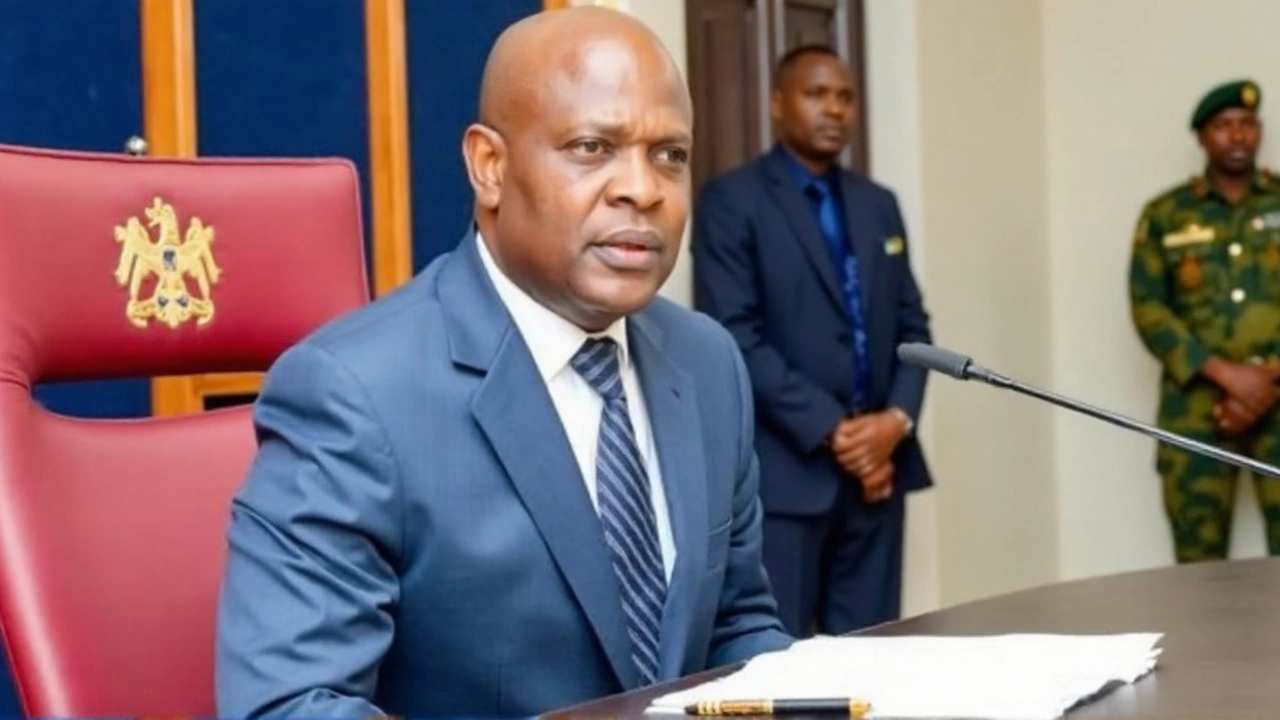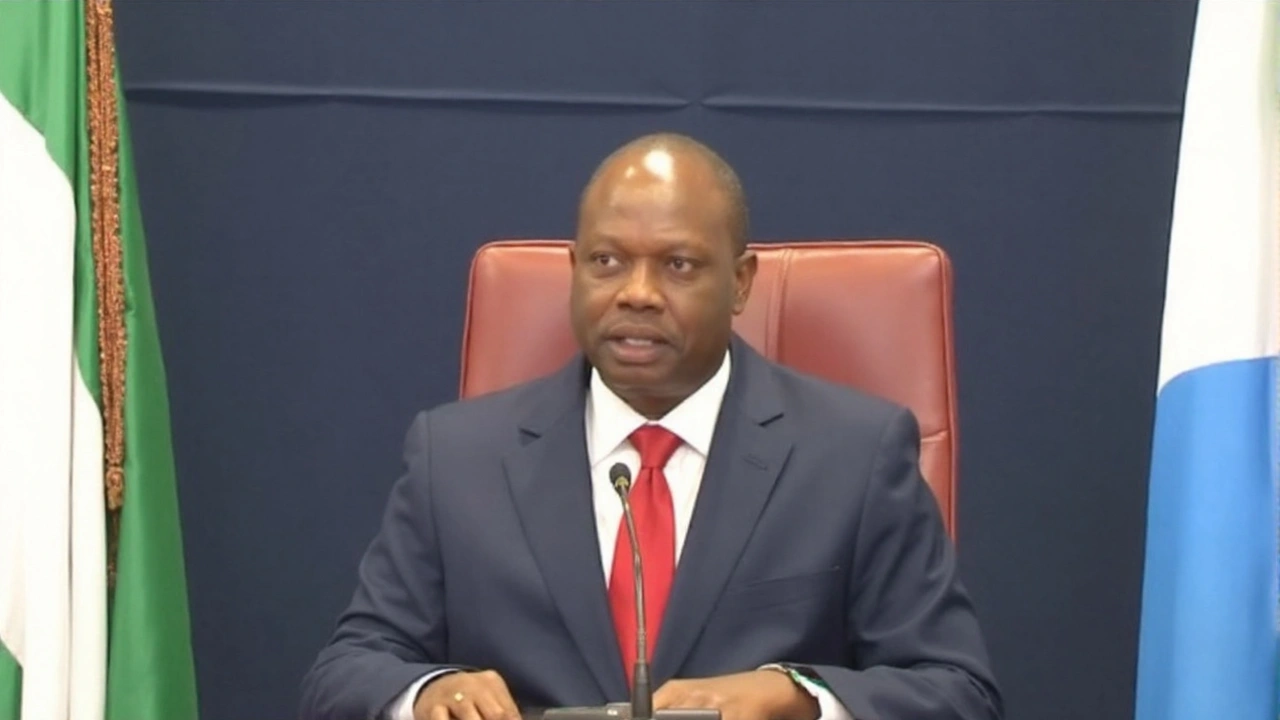Background of the dispute
When the Rivers State House of Assembly announced plans to scrutinise the six‑month spending record of former Sole Administrator IBAS, the reaction was swift. IBAS, who served as a government administrator before his current role, called the move “unconstitutional” and said the state legislature lacked the legal footing to examine the finances of a former official.
Supporters of the former administrator rallied behind him, noting that the state assembly’s powers are limited to current office‑holders. They argued that once an individual leaves a position, the jurisdiction to audit past actions shifts to a higher authority – in this case, the National Assembly.
In response, the state assembly defended its intent, saying the probe was meant to safeguard public funds and restore confidence after rumors of misallocation. They pointed to a series of budgetary allocations during the six‑month window that, they claimed, were never publicly accounted for.

Legal and political implications
Legal experts have weighed in, drawing a line between constitutional provisions and political practice. Most agree that the Nigerian Constitution reserves fiscal oversight of former state officials for the National Assembly, especially when the matter involves federal allocations or cross‑state financial flows.
- Constitutional argument: The state assembly’s charter does not list former officials among its oversight targets.
- Federal authority view: The National Assembly holds exclusive power to initiate investigations that cross state boundaries or involve former state executives.
- Political stakes: The standoff underscores a broader power struggle between Rivers State lawmakers and federal legislators, with each side keen to demonstrate its relevance.
Political commentators see the clash as a symptom of deeper governance issues in the Niger Delta. They note that frequent disputes over jurisdiction often stall critical audits, leaving citizens uncertain about how public money is managed. Some suggest that a clearer legal framework is needed to delineate when and how state bodies can examine former officials’ financial conduct.
The controversy also fuels the conversation about accountability mechanisms. If the state assembly cannot conduct the probe, citizens may feel forced to rely on the National Assembly, which historically takes longer to act on state‑level concerns. This delay can erode public trust, especially in regions already battling perceptions of corruption and mismanagement.
As the debate continues, the immediate question remains: will the National Assembly step in, or will the matter fizzle out, leaving the six‑month spending record untouched? The answer will likely set a precedent for how similar disputes are handled across Nigeria’s federated system.

Gift OLUWASANMI
September 23, 2025 AT 06:55Look, the state assembly trying to audit a former boss is like a kid demanding a refund for candy they'd already devoured – sweet, messy, and totally out of place. The constitutional dance they’re doing feels more like a circus act than a legal showdown, with each side juggling jargon like flaming torches. And while IBAS cries "unconstitutional," the reality is that political theatrics often drown out genuine fiscal responsibility. In the grand scheme, this tug‑of‑war just adds another layer of confusion for the average citizen, who wonders if anyone is actually watching the money.
Keith Craft
September 23, 2025 AT 18:02Ah, the drama unfolds with the eloquence of a courtroom melodrama! Behold the solemn proclamation of IBAS, whose vocal lamentations echo through the corridors of power as if each syllable were a gavel strike. The assembly’s noble quest to safeguard the treasury is draped in the gravitas of ancient republics, yet the quill of constitutional law seems to have been misplaced. One can almost hear the thunderous applause of destiny as this clash of titans reaches its crescendo, each argument wrought with the gravest of formalities, albeit laced with a whisper of informal flair.
Kara Withers
September 24, 2025 AT 05:08For anyone looking to understand the legal backdrop, the Nigerian Constitution does indeed reserve the oversight of former state officials for the National Assembly, especially when federal allocations are involved. This means that the Rivers State House may lack explicit authority to audit IBAS’s past spending, but the assembly can still request cooperation from federal bodies. In practice, inter‑governmental coordination often fills these gaps, so keeping an eye on any joint committees or special probes announced by the National Assembly could be worthwhile. Transparency portals and civil‑society watchdog reports are good places to monitor any developments.
boy george
September 24, 2025 AT 16:15Indeed the legal nuances matter
but practical politics often overrides pure jurisdictional theory
Cheryl Dixon
September 25, 2025 AT 03:22While many champion the notion that jurisdictional purity is sacred, one might wonder if the very act of insisting on rigid boundaries isn’t itself a philosophical exercise in power preservation. The assembly’s insistence could be read not merely as a quest for accountability but as a subtle assertion of regional autonomy in the face of an ever‑centralizing federal apparatus. In this light, the dispute becomes a microcosm of a larger dialectic: the tension between federal oversight and local sovereignty, each side invoking constitutional rhetoric to mask deeper ambitions.
Charlotte Louise Brazier
September 25, 2025 AT 14:28Let’s cut to the chase: whether the state can or cannot audit, the real issue is that citizens deserve answers now. We should rally behind any legitimate effort-state or federal-to get those six months under the microscope. So, I’m calling for a joint task force that brings together state legislators, federal oversight committees, and independent auditors. No more bureaucratic games; let’s demand transparency and hold every level accountable.
Donny Evason
September 26, 2025 AT 01:35From a cultural perspective, this standoff reflects the deep‑rooted narratives of regional identity versus national unity that have shaped the Niger Delta for decades. The Rivers State assembly’s push for scrutiny can be seen as an assertion of its own historical agency, a desire to showcase that local institutions are not merely passive observers but active custodians of public resources. Meanwhile, the federal response-or lack thereof-echoes longstanding sentiments of marginalisation among many communities. Recognising these layers can help frame the dispute beyond mere legalities, highlighting the need for dialogue that respects both cultural autonomy and constitutional balance.
Phillip Cullinane
September 26, 2025 AT 12:42When examining the procedural intricacies of inter‑governmental fiscal oversight, one must first acknowledge the multilayered architecture of Nigeria’s legislative framework, which delineates authority across both subnational and federal domains. The constitutional provision, specifically Section 308, articulates that the National Assembly holds plenary jurisdiction over matters concerning former state officials when the scope of investigation transcends state‑level fiscal allocations, thereby establishing a clear demarcation of power. However, the practical implementation of this provision is often mediated by a series of inter‑institutional liaison mechanisms, such as joint audit committees and parliamentary oversight sub‑committees, which serve as conduits for information exchange. In the case of the IBAS probe, the Rivers State House’s initiative ostensibly seeks to fill an evidentiary gap that may otherwise delay accountability, leveraging its proximity to local financial records and administrative archives. From a governance perspective, this localized scrutiny can expedite the identification of discrepancies, yet it simultaneously raises concerns regarding procedural legitimacy, given the constitutional hierarchy that prioritises federal oversight. Moreover, the potential for jurisdictional overlap introduces complexities related to the principle of cooperative federalism, wherein state actors must navigate the delicate balance between asserting their investigative prerogatives and respecting the primacy of federal authority. The resultant dynamic is further compounded by political considerations, as state legislators may perceive the exercise of oversight as a means to reinforce their constituency’s confidence, thereby enhancing electoral legitimacy. Conversely, federal legislators might interpret such actions as encroachments upon their exclusive mandate, prompting a defensive posture that could manifest in legislative pushback or the invocation of constitutional safeguards. Additionally, the role of civil society organizations and media watchdogs cannot be understated; these entities act as external auditors, amplifying transparency and fostering public discourse. Their involvement often catalyses pressure on both state and federal bodies to expedite investigative processes, thereby mitigating the risk of protracted inertia. Ultimately, the efficacy of the six‑month spending probe will hinge upon the extent to which collaborative frameworks are institutionalised, ensuring that data sharing protocols, methodological standards, and reporting mechanisms are harmonised across jurisdictions. In doing so, the overarching objective of safeguarding public funds can be actualised without compromising constitutional fidelity.
Janie Siernos
September 26, 2025 AT 23:48We must hold our leaders to the highest moral standard, and any attempt to dodge accountability is simply unacceptable.
joy mukherjee
September 27, 2025 AT 10:55Honestly, it’s frustrating to see such power plays unfold while everyday Nigerians are left in the dark 😕. Transparency isn’t just a buzzword; it’s a lifeline for trust.
Rob Chapman
September 27, 2025 AT 22:02Look folks the key is cooperation between state and federal bodies it’s the only way forward
Delaney Lynch
September 28, 2025 AT 09:08Indeed, the situation calls for a comprehensive, multi‑faceted approach; we need to examine legal statutes, assess political motivations, and, importantly, engage civil‑society watchdogs-because without their vigilance, accountability remains a distant ideal.
Nicholas Mangraviti
September 28, 2025 AT 20:15Clear pathways for oversight are essential.